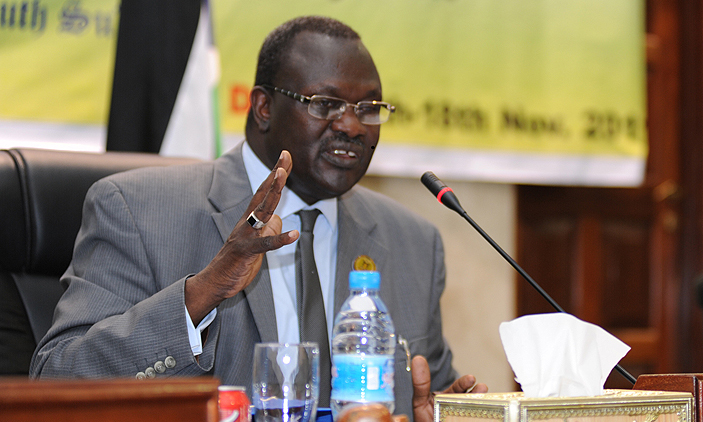
By Bida Elly David
The First Vice President Dr. Riek Machar yesterday reiterated less pay and poor working condition being factors that have contributed to employment turndown of lawyers and judges from the judiciary thus hindering the position of law enforcement in the country.
This development came during the launch of the Judiciary Reform Committee in Juba meant to transform the legal framework into an affirmative position.
Some months ago, a good number of lawyers and judges laid their tools down due to accumulated arrears that remained pending and unpaid by the government creating starving environment to most of their families. The lawyers demanded their arrears to be cleared for positive resumption of workforce.
Speaking during the event Dr. Riek Machar Teny, the First Vice President of the Republic of South Sudan in his opening remarks said most professional lawyers and judges have quit the government sector into private law firms due to poor remuneration policy that could not improve their family’s standard of living.
He jagged out that the most disputes and conflicts in South Sudan have been resolved through the help of customary laws guided by traditional principles and ethics as well as local courts to bring to an end disputes among people of various communities.
“The government judiciary has been deserted. In our judiciary, a good number of judges have left. One of the reasons could be low salaries as well as the working condition within the scope. The working condition in the judiciary is not attractive and favourable to the staff especially the lawyers. In this country, we also have a unique situation. Most of our mitigations are based on customary laws and customary courts”.
Furthermore, Dr. Riek revealed that most of the statutory courts in the country contribute less in regards to handling serious and sensitive civil matters hindering the society.
“The statutory courts in the country do less in regards to handling civil matters or cases. The customary courts are the ones operating and in our constitution we say we recognize the customary laws, which is something we must put into consideration” he said.
In continuation, Dr. Riek suggested the prevalence of customary law in deciding mechanisms to amend cases in accordance to the constitution of the country and these norms become the subset of the real country’s constitution that will be used to judge the conducts and behaviour of the domiciles accordingly.



